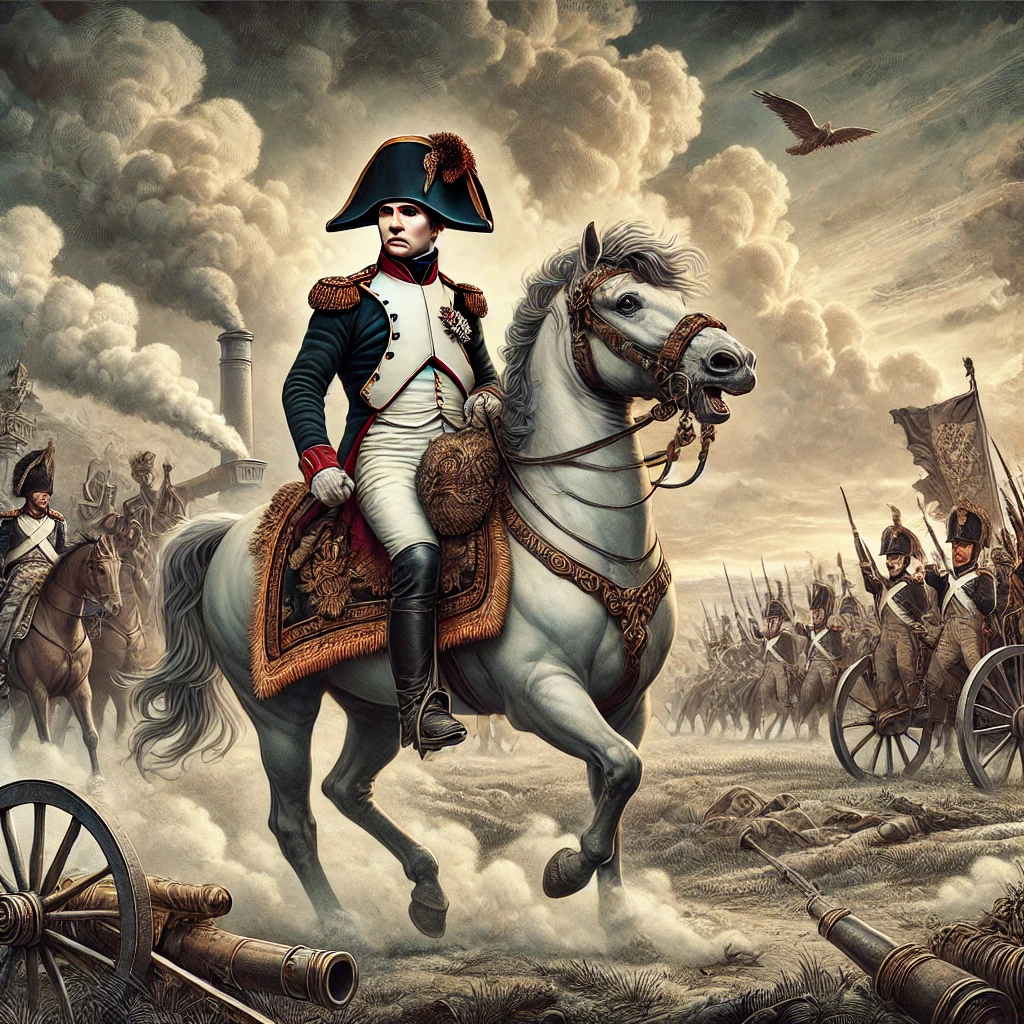Napoleon Bonaparte, a figure who left an indelible mark on history, is renowned not only for his victorious campaigns but also for his crushing defeat at Waterloo and the dramatic outcomes of his Moscow Campaign. How did this military genius, who once brought Europe to its knees, end up in exile on Saint Helena? In this article, you will explore the peaks and falls of Napoleon’s imperial journey.
The Incredible Rise of Napoleon Bonaparte
In 1768, the Treaty of Versailles transferred all the rights of the Republic of Genoa over Corsica to France. At the time, this acquisition seemed like a minor gain for France. However, it indirectly changed the course of world history.
The following year, in 1769, a boy named Napoleon Bonaparte was born on the island of Corsica. His father, Carlo Bonaparte, was a lawyer who, unlike many of his peers, embraced French rule after Corsica came under French administration and entered their service. By 1771, his loyalty was rewarded with a noble title.
Napoleon’s Education
In January 1779, Napoleon’s family sent him to France for education. He first enrolled in a religious school and later, in the same year, joined the Brienne Military School. His keen interest in mathematics and geometry secured him a place at the prestigious Royal Military School in Paris in 1784.
Excelling throughout his education, Napoleon was appointed as a Second Lieutenant in the artillery regiment in 1785. During his early military years, he often took leaves to visit his family in Corsica.
The French Revolution and Napoleon’s Rise
By 1791, Napoleon joined the Jacobin Club, which played a crucial role in the French Revolution. Founded in 1789 by anti-monarchy members of the National Assembly, the Jacobins evolved into a republican movement. Napoleon believed that being part of this group would be advantageous for his future. At the time, France was in turmoil, and Napoleon had the courage to take risks for his ambitions.
The Execution of the King and Its Ripple Effects
On January 21, 1793, King Louis XVI was executed publicly, causing a shockwave across Europe. Fearful of meeting the same fate, other European monarchies began preparing for war against France.
The Siege of Toulon and Napoleon’s Victory
In 1793, royalists in Toulon revolted against the French government, seeking assistance from Britain. General Carteaux was sent to quell the uprising, but a lack of competent officers in the army gave Napoleon Bonaparte the opportunity to shine.
At just 24 years old and relatively inexperienced, Napoleon achieved a significant victory against British forces in Toulon. This success earned him a promotion to Brigadier General, marking the first major breakthrough in his career.

Napoleon’s Ascent to Emperor
Riding the revolutionary wave, Napoleon rapidly climbed the ranks. In 1794, the Jacobins were overthrown, and the Directory regime was established. Napoleon, due to his association with the Jacobins, was briefly imprisoned but was soon released.
In 1799, with the Directory regime weakening, Napoleon staged a coup and took control of the government. Declaring himself First Consul, he later proclaimed himself Consul for Life and, in 1804, became Emperor of France with popular support.
Imperial Wars in Europe
After his coronation, wars erupted between France and other major European powers. Napoleon aimed to expand France’s borders and establish French dominance in Europe. Although Austria, Prussia, Russia, and Britain formed a coalition against him, Napoleon showcased his military genius by defeating Austrian and Russian forces at the Battle of Austerlitz in 1805, solidifying his supremacy.
The Moscow Campaign and the Beginning of the End
In 1812, Napoleon launched a massive campaign against Russia. However, Russia’s harsh climate and strategic retreat devastated Napoleon’s Grand Army, resulting in the loss of a significant portion of his 600,000-strong force. This catastrophic defeat marked the beginning of his downfall.
The Battle of Leipzig and Post-Empire
In 1813, Napoleon suffered a crushing defeat at the Battle of Leipzig, also known as the Battle of Nations. Once again, a coalition of European powers united against France. In 1814, allied forces captured Paris, forcing Napoleon to abdicate. He was exiled to the island of Elba.
Napoleon’s Final Act The Battle of Waterloo
Escaping Elba in 1815, Napoleon returned to France and reclaimed the throne, beginning a period known as the Hundred Days. However, his comeback was short-lived. At the Battle of Waterloo, the coalition forces, led by Britain and Prussia, decisively defeated Napoleon, ending his political career.
Exile on Saint Helena and Death
Following Waterloo, Napoleon was exiled once more, this time to the remote island of Saint Helena in the Atlantic Ocean. He spent his final years on this island, passing away in 1821. Even after his death, Napoleon remains one of the most significant figures in world history.

Admiring the hard work you put into your site and detailed information you present. It’s good to come across a blog every once in a while that isn’t the same outdated rehashed information. Great read! I’ve saved your site and I’m adding your RSS feeds to my Google account.
Hi there! I know this is kinda off topic but I was wondering which blog platform are you using for this website? I’m getting tired of WordPress because I’ve had problems with hackers and I’m looking at options for another platform. I would be awesome if you could point me in the direction of a good platform.